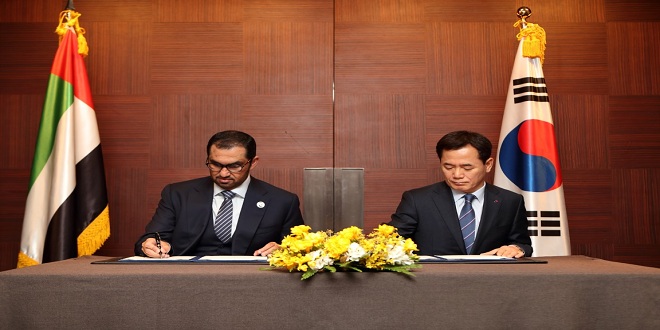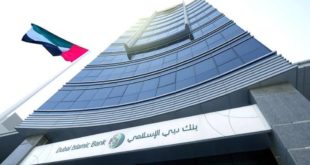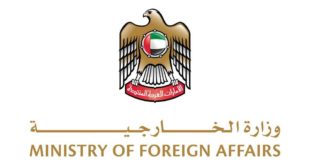Media In / Seoul 26-02-2019 / WAM
On the sidelines of the official visit of His Highness Sheikh Mohammed bin Zayed Al Nahyan, Crown Prince of Abu Dhabi and Deputy Supreme Commander of the UAE Armed Forces to the Republic of Korea, ADNOC signed three framework agreements with Korean energy companies today to discuss joint cooperation opportunities in the Republic of Korea. Exploration, development and production, potential investments in refining and petrochemicals, transport of oil and liquefied natural gas (LNG) shipments and loading on ships.
The agreements were signed with the South Korean Gas Corporation (KOGAS), the second largest LNG buyer in the world, which conducted a feasibility study on the supply of liquefied natural gas (LNG) at the port of Fujairah and the Korean National Oil Company (KNOC) Of the shares of Al Dhafra Petroleum Company of ADNOC and seeks to increase the storage of oil in Korea by about 24 million barrels until 2025, and with GS Energy, which is an independent Korean energy company and owns 10% in Al Dhafra Petroleum and 3% ADNOC Marine.
The agreements were signed by Dr. Sultan bin Ahmed Al Jaber, Minister of State and Chief Executive Officer of Abu Dhabi National Oil Company (ADNOC) and its Group of Companies with Kim Yong-do, CEO of the South Korean Gas Corporation (KOGAS), and Yang Soo-young, (CNOOC), and He Yong Seo, CEO of GS Energy.
“In line with the leadership’s approach to building bridges of cooperation and closer partnerships with friendly countries around the world, and within the distinguished relations of the UAE, Abu Dhabi and ADNOC with the Republic of Korea, we are pleased to explore opportunities to strengthen partnerships between ADNOC And Korean companies, reflecting the depth and importance of bilateral relations between our two friendly countries. ”
“During the discussions with the Korean companies, we discussed the growth opportunities available in a number of areas at the local and global levels, including the transport and loading of oil and liquefied natural gas (LNG) shipments, meeting Korea’s growing demand for energy and attracting Korean investments to contribute to ADNOC’s plans. To expand its operations in the fields of exploration, development, production, refining, petrochemicals and gas. ”
“As we successfully implement our integrated 2030 Smart Growth strategy, we intend to continue to collaborate with strategic partners that are able to contribute to maximizing the value of our resources, transfer advanced technology and ensure access to new global demand centers.”
The Republic of Korea was the eighth largest energy consumer in the world in 2017.
According to the International Energy Agency, Korea imported about 3 million barrels per day of crude oil and condensate, making it the fifth largest importer in the world. Korea relies heavily on the Middle East for its supply of oil. The region accounted for more than 82 percent of Korea’s 2017 crude oil imports, of which 11 percent was supplied by ADNOC.
Korea is also the third largest importer of LNG in the world. According to its 13th long-term natural gas plan, domestic demand for gas to generate electricity is expected to reach 40.49 million metric tons by 2031, an increase of 3 million metric tons from 2017 levels.
Korea is home to three of the world’s top 10 crude oil refineries, making it one of the largest exporters of petroleum products in Asia, according to the International Energy Agency. By the end of 2017, its refining capacity was approximately 3.2 million barrels per day of crude oil, and ranked sixth in terms of refining capacity in the world.
As part of Korea’s efforts to become a major storage and trading center for liquids in Northeast Asia, KOC through joint ventures with other companies is building the country’s first crude oil and petroleum products terminal in Yeosu and Ulsan with a total capacity of 36.6 Million barrels. The first facility was launched in 2013 with a capacity of 8.2 million barrels, located in Yeosu in the southwestern region of the country. The other two plants are being built in two phases in Ulsan in the southeastern region of Korea with a capacity of 28.4 million barrels and will be operational by 2026.
To protect against disruption of oil supplies and price fluctuations, Korea maintains strategic and commercial reserves of crude oil and petroleum products.
KNOC operates nine state-run storage facilities with a capacity of 146 million barrels. As of March 2018, CNOOC’s strategic reserves are 96 million barrels, in addition to about 27 million barrels as international stocks under agreements between Korea and other governments.

 Media ININ Economy We Trust
Media ININ Economy We Trust







